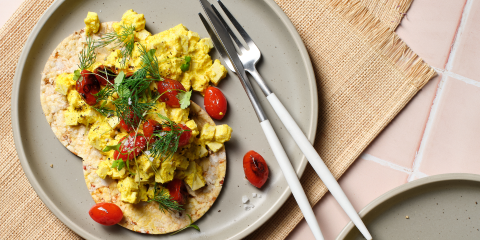Spice Up Your Life with Turmeric

Spices enhance the experience and health benefits of food. You may be familiar with the spice called turmeric. Turmeric is a spice which has been used for centuries in Asian cooking but until recently has been ignored in western culture. Turmeric has gained popularity for many reasons including being used as a potential weapon against many inflammatory diseases and skin conditions.
How does turmeric work?
Turmeric contains a chemical called curcumin. This chemical has been linked to decreasing inflammation in the body and as a result may help in conditions like:
- urinary bladder inflammation
- arthritis
- Skin conditions and sores. There is evidence that turmeric taken orally or directly onto the skin may increase skin health.
- Colds and lung infections. There are studies which support the role of turmeric in its ability to help reducing the infections and inflammation in your lungs
- Depression. There are small clinical studies which support the use of turmeric as a treatment for depression.
A must try recipe is Tofu Scramble with Tomato on Corn Thins slices
Take home message:
Turmeric has many potential health properties to support the healthiest version of you. By enjoying turmeric in tea, you can enjoy the health benefits of this spice anytime of your day. Note: If you are currently taking any medications such as anticoagulated and nonsteroidal drugs these may have interactions with this spice so always talk to your GP if in doubt.
References:
1. Daily JW, Yang M, Park S. Efficacy of Turmeric Extracts and Curcumin for Alleviating the Symptoms of Joint Arthritis: A Systematic Review and Meta-Analysis of Randomized Clinical Trials. Journal of medicinal food. 2016; 19(8):717-29.
2. Vaughn AR, Branum A, Sivamani RK. Effects of Turmeric (Curcuma longa) on Skin Health: A Systematic Review of the Clinical Evidence. Phytotherapy research : PTR. 2016;30(8):1243-64.
3. Thavorn, K., Mamdani, M. M., & Straus, S. E. (2014). Efficacy of turmeric in the treatment of digestive disorders: a systematic review and meta-analysis protocol. Systematic Reviews, 3, 71. http://doi.org/10.1186/2046-4053-3-71
4. Moghaddam, S. J., Barta, P., Mirabolfathinejad, S. G., Ammar-Aouchiche, Z., Garza, N. T., Vo, T. T., … Dickey, B. F. (2009). Curcumin inhibits COPD-like airway inflammation and lung cancer progression in mice. Carcinogenesis, 30(11), 1949–1956. http://doi.org/10.1093/carcin/bgp229
5. Maroon, J. C., Bost, J. W., & Maroon, A. (2010). Natural anti-inflammatory agents for pain relief. Surgical Neurology International, 1, 80. http://doi.org/10.4103/2152-7806.73804
6. Natascia Brondino, Simona Re, Annalisa Boldrini, et al., “Curcumin as a Therapeutic Agent in Dementia: A Mini Systematic Review of Human Studies,” The Scientific World Journal, vol. 2014, Article ID 174282, 6 pages, 2014. doi:10.1155/2014/174282